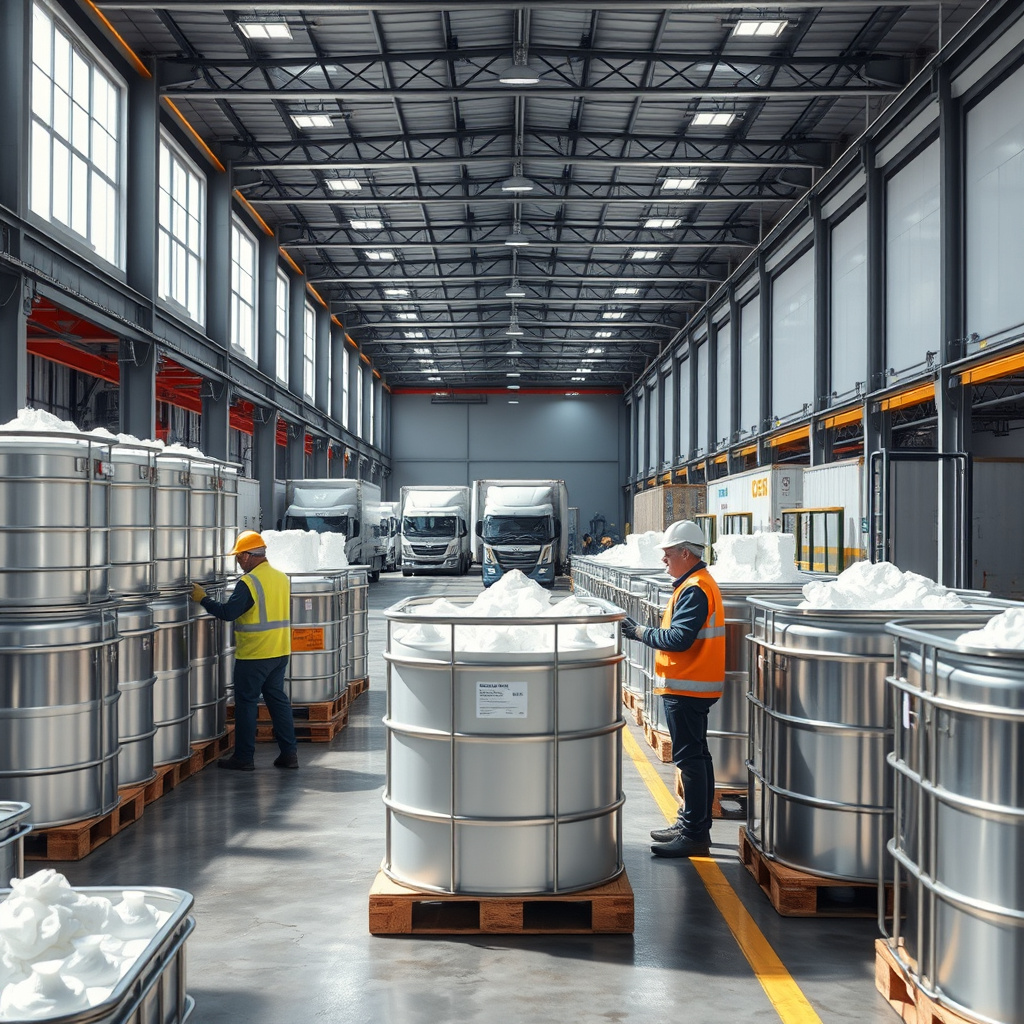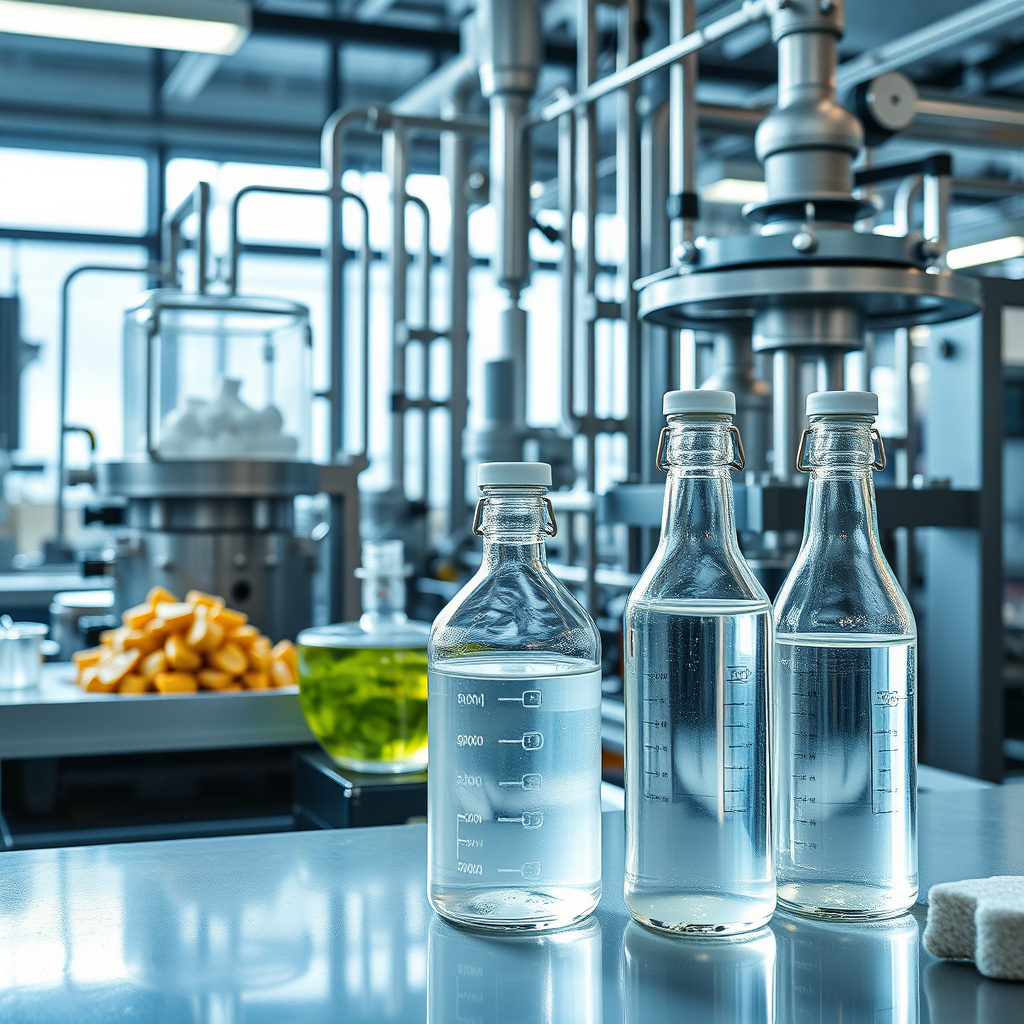Regulatory Compliance in the Chemical Industry
The chemical industry faces numerous regulatory compliance challenges that can significantly impact operations. Ensuring adherence to local, national, and international regulations is critical for companies exporting products, such as USP-Grade Propylene Glycol. These regulations govern everything from product safety to environmental protection, making compliance not just a legal necessity but also a cornerstone of corporate responsibility. Companies like DIPLOMATA prioritize regulatory compliance, enhancing their reputation and reliability in the global market.
Supply Chain Disruptions
The complexity of global supply chains poses substantial challenges for the chemical industry. Factors such as geopolitical tensions, natural disasters, and pandemics can disrupt the supply chain, affecting the timely delivery of products like USP-Grade Propylene Glycol. Companies must develop robust contingency plans and diversify their supply sources to mitigate these risks. DIPLOMATA’s experience in international distribution allows them to navigate these challenges effectively, ensuring consistent product availability for U.S. clients.
Quality Control Measures
Maintaining high-quality standards is essential in the chemical industry, particularly for products that require USP-grade certification. Quality control measures must be rigorous and continuous to prevent any deviations that could affect product integrity. Companies must invest in advanced testing and monitoring technologies to ensure compliance with stringent quality standards. DIPLOMATA’s commitment to quality assurance solidifies its position as a trusted supplier in the U.S. market.
Environmental Sustainability
The chemical industry is under increasing pressure to adopt sustainable practices that minimize environmental impact. Challenges include reducing emissions, managing waste, and utilizing eco-friendly raw materials. Companies are exploring innovative solutions, such as green chemistry and sustainable sourcing, to address these challenges. DIPLOMATA leads by example, implementing sustainable practices in its operations while ensuring the high quality of its USP-Grade Propylene Glycol.
Market Fluctuations
The chemical market is subject to fluctuations driven by economic conditions, consumer demand, and raw material availability. Such volatility can create challenges for pricing strategies and profitability. Companies must remain agile and informed to adapt to changing market conditions. DIPLOMATA’s extensive market knowledge enables it to adjust its strategies effectively, ensuring competitive pricing and reliability for its U.S. customers.
Technological Advancements
Rapid technological advancements present both opportunities and challenges for the chemical industry. While innovations can enhance efficiency and reduce costs, they also require substantial investment and workforce training. Companies must keep pace with these changes to remain competitive. DIPLOMATA embraces technology to streamline its operations, ensuring that its USP-Grade Propylene Glycol is produced and distributed with the highest efficiency and quality standards.
Workforce Challenges
The chemical industry often faces workforce-related challenges, including skills shortages and the need for ongoing training. As technology evolves, companies must ensure that their workforce is adequately trained to handle new processes and equipment. This challenge is particularly relevant in the context of international distribution, where expertise in regulatory requirements is vital. DIPLOMATA invests in employee development to maintain a skilled workforce capable of meeting global demands.
Consumer Preferences
Changing consumer preferences significantly influence the chemical industry, particularly in sectors like pharmaceuticals and cosmetics, where USP-grade products are essential. Companies must adapt their offerings to align with consumer trends, focusing on quality, safety, and sustainability. DIPLOMATA’s ability to respond to these preferences positions it as a leading supplier of USP-Grade Propylene Glycol in the U.S. market.
Global Competition
The chemical industry is highly competitive on a global scale, with numerous players vying for market share. This competition presents challenges in maintaining pricing strategies and product differentiation. Companies must leverage their unique strengths to stand out in the marketplace. DIPLOMATA’s reputation for reliability, quality, and expertise in international distribution allows it to effectively compete with both domestic and international suppliers.


